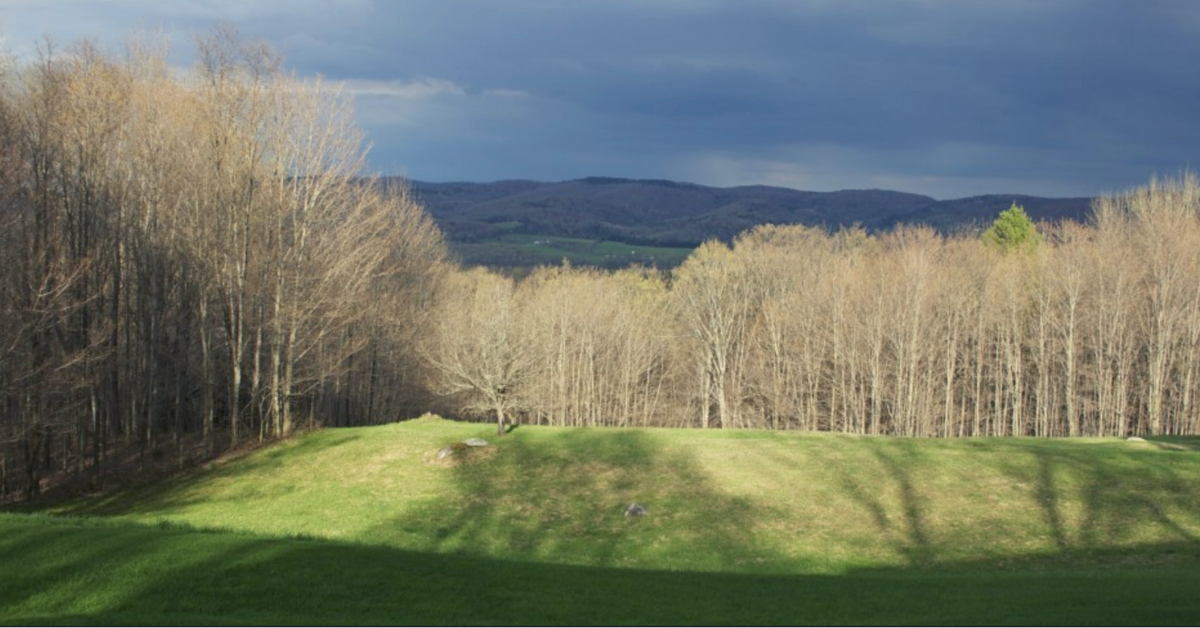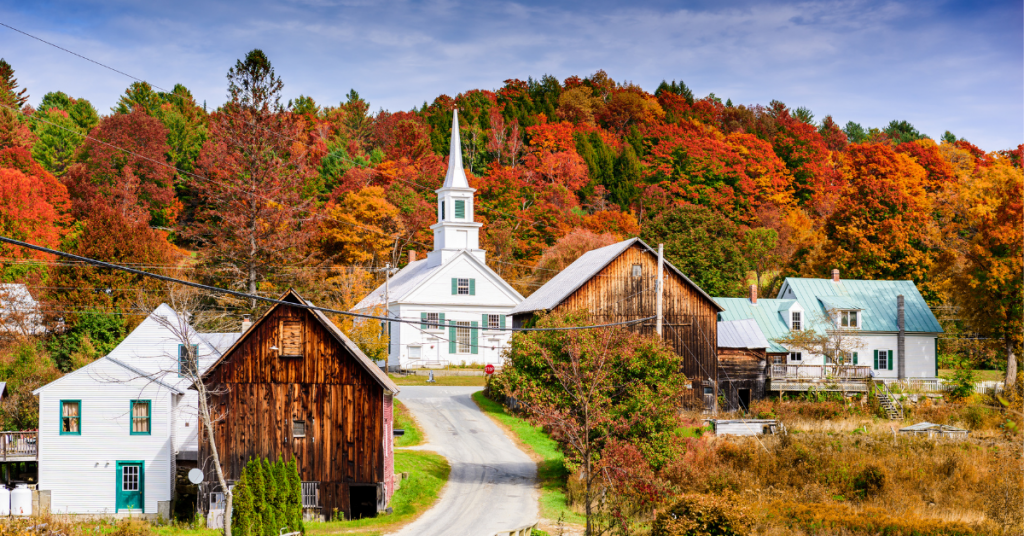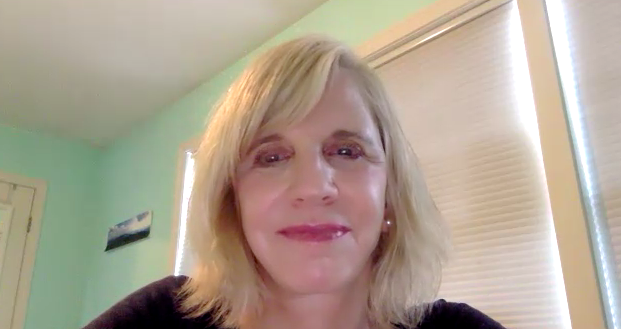“What does it mean to love a place?” asks E.J. Myers in his book, “On Whitcomb Hill: Land, House, and History in Rural Vermont” (Montemayor Press, 2019).
Whether his predecessors loved the land on which he and his wife Edith have lived since 2010, Myers cannot know, but through his work, the author painstakingly explores his own relationship and theirs to the 10-acre tract of Vermont land he now calls home. In so doing, Myers speaks to the importance of connectedness to place—to its history and our relation to it.
“It’s hard to feel changed by what you’ve learned,” Myers opines early in the book. But over the course of our discussion one Friday afternoon, Myers—author of more than 40 books and a self-professed “semi-competent, grouchy” Buddhist—does confess to being changed by the knowledge gained from writing this book.
“We tend to think of big places as powerful and full of meaning, whether a huge national park or a large state, but even a very small property can have a welter of things going on. And not just the things in the present but the fact that what’s here and now connects to the past,” says Myers.
In explaining his purpose as a writer, Myers suggests he is someone who asks questions and tells stories, and in his own quest to understand place and his relationship to it, Meyers seems to invite the reader to do the same.
Running through his book are several themes. “Theme number one was discovering what is my relationship to this land on a physical level—the forest, the pond, the house, the old fruit trees, the gardens. The second is that place is not just geographical. It is also temporal.”
To provide that geographical and temporal context, Myers provides the reader his own extensive research on the history of the property and the white settlers who occupied it, dating back to its first deeded occupants in the late 18th century.
The book then culminates into an exploration of what Myers calls the land’s spiritual dimension, what he tells me is arguably the third theme of his work.
“It is easy to see a place as strictly material, as just an abandoned farm. But you can take almost any place and reach spiritual insights about it. If you get to know a place, if you grasp its sense of history, if you perceive what’s in that, namely transitory-ness, you also realize, My God, I’m just another blink of an eye in this timeline.”
Not that his narrative or its timeline is linear in its aspect.
“There are books that I’ve written where I present a theme or a topic early on and then I build on that. In a sense I put my cards on the table. There are other books that I’ve written, of which this is one, where there’s quite a bit that’s unstated. It’s as if a bunch of themes are coming from different directions and then meet up at the end.”
Which thankfully, they do, resulting in what is not simply a single history of a land and its settlers, but also a story of one man’s journey through place and his own relevance—or lack thereof—within it.
Concludes Myers at the end of our chat: “(This book) was the most concerted effort I’ve ever made to understand a place that I’m living by means of writing about it. It woke me up. I go out every day and just try to see with my eyes wide open. I’ve learned a lot about Vermont way beyond the borders of this tiny property by paying attention to this property. One of the things we can do is love a particular place and then fight hard to defend that because everywhere is connected to everywhere else. I have to care about the rest of the world because the damage to the rest of the world will damage this place too.”
Or as he seems to suggest at the end of his work in a nod to Robert Frost’s poem, “Stopping by Woods on a Snowy Evening”, this book is, in its essence, the start of a discovery, both for himself and for his reader, to come to terms with what it is to be in and of a world and its unfathomable landscape.
At the book’s close, having left “the woods—lovely, dark and deep”—and engulfed in “slate-gray dusk,” Myers—the questioner, the storyteller, the semi-competent Buddhist—returns to his house up on Whitcomb Hill to fix dinner for his family and tells us:
I want to sit with them, share the meal, and enjoy the warmth of their companionship. Sati—bare attention? I want that too. Bodhi—full waking consciousness? Maybe I’ll attain that some day as well—and, who knows, maybe even while sitting in our little forest. Not tonight, though. Not here.
The woods are lovely…dark…opaque…
But I have promises to make,
And miles to go before I awake.
And miles to go before I awake.




